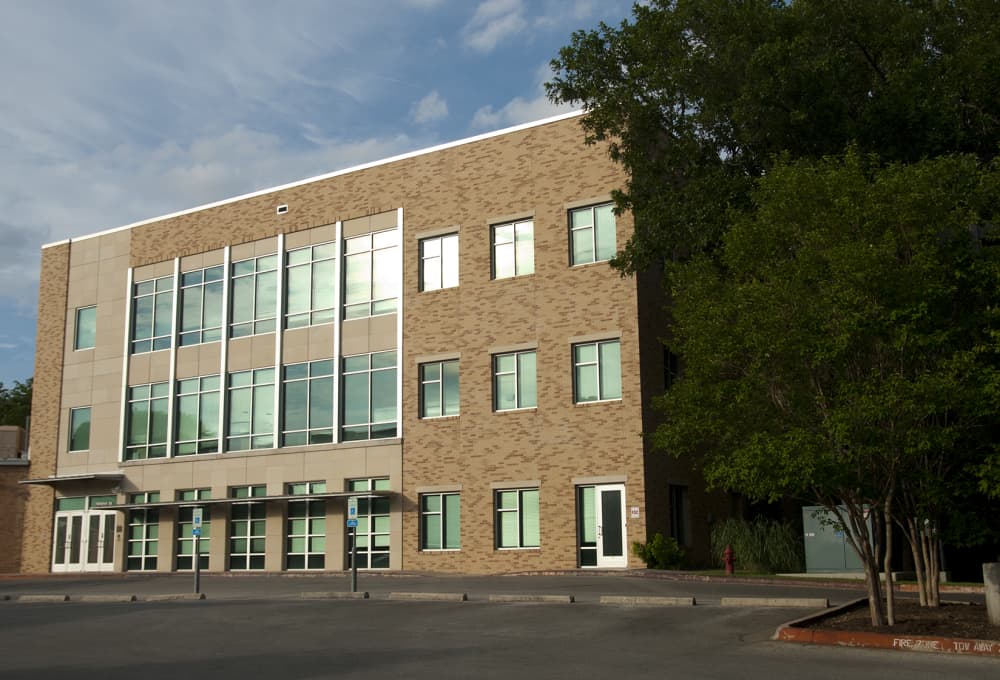Education Matters
Real genius: ACE Academy fosters exceptional young minds



 Photo by Jessica Pages
Photo by Jessica Pages
The staff at ACE Academy is keeping busy this summer.
Although the school year ended before Memorial Day, their first two-week Summer Wonders program kicked off its first session June 20. The second session begins July 11, and a third week long session called Mind Games begins July 25.
Whereas most teachers would bemoan their absentee summer vacation, the instructors at ACE are having a blast. Where else can they teach classes about advertising brainwashing, viral media and game theory to eager junior high students?
Clearly, ACE Academy is not like most schools. More precisely, ACE is a school unlike any other in Austin; a rare and wonderful creature that is finding its voice and place in the world.
Just like the rare and wonderful students attending ACE Academy.
A safe place to learn
Twelve years ago, Karen Langdon and Donna Hulsey were frustrated parents who felt powerless to change their sitations at home. Each mother faced a monumental challenge in the form of their gifted children who were surpassing the educational demands of their public schools.
Resigned to once-a-week pullout classes and endless aptitude testing, both mothers realized independently that their Independent School District was not prepared to accommodate the needs of their gifted children.
"I watched my daughter disintegrating in front of me," recalls Langdon. "I've experienced firsthand how limiting a gifted child damages them. I would have done anything to save her."
So the two brave women—both accomplished scholars in their own regards—decided it was up to them to create a new space for gifted Austin students to thrive.
Built from the framework of Langdon’s immensely popular “Summer Wonders” program for gifted and talented students, the two designed a revolutionary independent school with a pedagogy based on flexibility, in-depth exploration and hands-on application.
In 2005, Hulsey assumed the role of Head of the School and Langdon became the school’s Director of Admissions and School Counselor. They were also the school’s first instructors, teaching eight students in the classrooms of the Congregation Beth Israel on Shoal Creek. Together, these ten pioneers surveyed the rocky landscape of a new adventure, learning and improving as they went along.
“They weren’t following the rules of business; they were implementing the latest research on how gifted children learn. We’re still doing that today,” says Program Director Elizabeth Lay who was hired initially as an administrative assistant and later as the Shakespeare and fencing instructor. For third and fourth graders.
As enrollment grew, Hulsey and Langdon continued to recruit a staff of instructors, curious and passionate about gifted children as well, who understood the necessity and rewards of this endeavor.
“Instructors at ACE are extraordinary, eccentric people, not your average teachers,” states Lay. “You have to be okay with students sometimes being smarter than you. That can be hard for a lot of people.”
With each increasingly successful year, ACE has steadily grown by a third with the assistance of donors and parents. From eight students in 2005, Hulsey and Langdon are now seeking their own free-standing building to accommodate the anticipated 150 students that will call ACE their home.
The students feel like they finally belong somewhere. Children who were teased, isolated or bored by their previous schools are receiving the levels of engagement they crave like sun and water.
Fostering genius
The term “gifted and talented” (GT) is a tricky word that has been reduced by common academic usage to signify a high score on standardized IQ tests (130 and above). Beyond IQ scores, ACE recognizes that giftedness comes in many other forms as well.
According to ACE’s approach, giftedness may reveal itself through advanced intellectual development, outstanding emotional intelligence (E.I.) or creative prodigiousness. There is often a combination of all three elements that emerges throughout the GT lifespan.
The tricky part—as any educator can agree—is keeping each of these aspects stimulated at the same time. Think of it like juggling a baseball, a book and a piano that are all growing exponentially at random periodic intervals.
Not only is this difficult for the students experiencing the isolation of advancing beyond their peers, but their parents and teachers are often exasperated by an inability to keep up with their surging intellectual development.
The Academy prides itself on revolutionizing the way we look at School, the institution that many associate with discipline, busy work and standardized tests.
At ACE, students are not separated by grade levels. Since students develop asynchronously in the different areas of their giftedness, students instead take the classes that meet their skill levels. It is not uncommon to find a seven year old and a twelve year old in the same algebra class at ACE.
To meet these needs, Lay discloses that class schedules are individually tailored for each student. “With 150 students, it’s an impressive mathematical spreadsheet that determines how each student’s day will look.”
These flexible groupings—which are never larger than twelve students—also allow instructors to adapt their teaching strategies accordingly for each group.
Langdon adds, "There's never enough time to talk in our classrooms. These students need to express their thoughts, so teachers factor in free response time so they can get out their thoughts. The students can all talk over one another, and they all process everything in a way we adults cannot. The rest of the time, we help them learn hand-raising and taking turns."
Another key difference with ACE is their looser approach to discipline. Physical fights aren't likely to break out at the inside-kids school, so disciplinary infractions are much more...creative.
In three years of working there, Lay can recall two specifically colorful incidents that stood out from the usual schoolday kerfluffles. Once was for a student stealing batteries to help power a homemade vandagraph generator. The other was for students breaking into a science classroom to continue working on their experiment that was near completion.
“We’ve got a lot of wriggly kids,” says Lay. “But we also foster a community of respect. So as long as you’re not disrupting another student’s learning, you’re fine in my book.”
Academically speaking
Most surprisingly, there are no required standardized tests of any kind at ACE. While students do meet the Texas Essential Knowledge and Skills requirements, they are exempt from the public schools’ standardized tests for math and language proficiency that are highly criticized by educators for limiting creativity in the classroom.
The ACE Academy takes a more unstructured approach to their curriculum to match the students’ inquiries and interests. If the students are passionate about going further in-depth about a given subject, teachers are free to restructure their lesson plans accordingly.
“Everything has to be organic,” says Lay. “There’s no way to anticipate where the students will take the lesson.”
Beyond the expected reading, writing and ‘rithmetic, ACE students are also likely to be learning foreign languages, strategic chess, fencing, robotics, music and drama.
And, of course, most of these classes are taught at the university level due to the interests and capacities of the students at ACE. All of the instructors are themselves experts in their fields—many have PhDs—so the students are sure to get the types of answers that will satisfy their ever-expanding minds.
In order to ground students in the Austin community and raise them as global citizens, ACE also emphasizes community service activities and field trips into the basic curriculum. Regular visits include the UT Robotics Department, the Capital Area Food Bank and Habitat for Humanity for hands-on learning.
Getting outside of the classroom benefits the students in terms of socialization and awareness of the world outside their studies.
“These kids all know they’re smart, so they don’t have to prove it anymore,” laughs Lay. “Now they need to learn how to have slumber parties and make friends and share with others. They’ve got their whole lives to worry about being smarter than everyone else.”
Growing pains
As ACE continues to grow, space and size are on the major concerns of Hulsey and Langdon these days.
Every inch of rented classroom space at Congregation Beth Israel is occupied for instructional purposes, and teacher office space is more of a concept than a lived reality.
Individualized attention remains the highest priority at ACE as well. With their enrollment of 150 students for Fall 2011, the administrators are considering if a cap is soon necessary in order to continue the same level of instruction. The scheduling process alone would be impossible for even the best algorithm.
ACE announced earlier this year in the Austin Business Journal they are seeking to raise several million dollars to build a new stand-alone facility that would include a global research center, observation rooms for parents and a state-of-the-art GT teacher training facility.
"Major advancements like this just don't fall from the sky," admits Langdon. "We need individuals who support our mission and also want this educational opportunity for the city."
Langdon is correct in citing the potential financial, artistic and intellectual benefits for the city in drawing parents of GT students to Austin. Already, families from Florida, West Virginia, California have relocated to Austin specifically so children can attend ACE.
On the opposite side of that coin, Austin should consider the potential brain drain that would result from an exodus of families of GT students if their educational needs are unmet.
"Ultimately, we would like to see 300-350 students in each level of the school with a head of each school to oversee them," says Langdon.
As the Academy continues to flourish, the first batch of ACE students are rapidly approaching graduation. Raising the questions: How will colleges respond to these carefully-tended geniuses? But better yet, how will these special students respond to college life?
“These kids qualified for admission to U.T. when they were in sixth grade,” mentions Lay with a smile. “So finding the right college for them will be a new, surprising lesson we all learn together.”
In the meanwhile, it’s business as usual at ACE this summer. Gifted children from all over the world--Mexico, Taiwan, Japan, Korea--join Hulsey, Langdon, Lay and the rest of the staff and students for the Summer Wonder workshops.
Says Langdon, "You really can't believe how much kids change once they receive the attention they need. You've really got to see it in action to believe it."
Finally, a school where being gifted is never a burden for students but instead an endless opportunity.

 Caltrops on the Rio Grande in Big Bend National Park.Photo courtesy of the U.S. National Park Service
Caltrops on the Rio Grande in Big Bend National Park.Photo courtesy of the U.S. National Park Service The blanket flower is found in two-thirds of Texas, from the Rio Grande to the Gulf Coast to Edwards Plateau.Photo by Bruce Leander via the
The blanket flower is found in two-thirds of Texas, from the Rio Grande to the Gulf Coast to Edwards Plateau.Photo by Bruce Leander via the  The Carolina jessamine is the Wildflower Center's 2026 Wildflower of the year.Photo by Stephanie Brundage via the
The Carolina jessamine is the Wildflower Center's 2026 Wildflower of the year.Photo by Stephanie Brundage via the